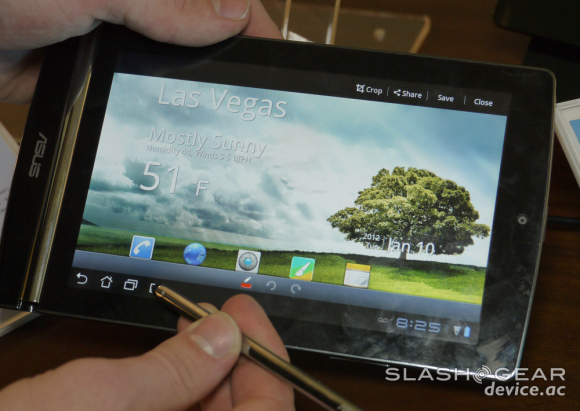Google‘s Eric Schmidt has again denied there is any fragmentation problem within Android, claiming that the platform instead shows customer-friendly “differentiation.” Speaking at CES this week, where many manufacturers revealed devices running older versions of Android but promised Ice Cream Sandwich upgrades at some point later this year, Schmidt argued that “differentiation is positive, fragmentation is negative,” PCMag reports. The deciding factor, he claimed, was that apps ran across devices on different iterations of Android.
“Differentiation means that you have a choice and the people who are making the phones, they’re going to compete on their view of innovation,” Schmidt argued. “They’re going to try and convince you that theirs is better than somebody else.”
The proliferation of Android devices over the past eighteen months, Google’s rapid update cycle, as well as vendor attempts to differentiate their phones and tablets by modifying the core OS, has left multiple versions of each Android iteration co-existing on the market. Over time, there’s a gradual shift of the majority of devices to newer versions, but phones are still being launched running Android 2.3 and even 2.2 when Google itself is up to 4.0 with the Galaxy Nexus. Meanwhile, vendors promise upgrades but actually delivering on them generally takes longer than expected, leaving owners stuck either with older versions of the OS or forced to play with unofficial third-party ROMs from the developer community.
As for whether manufacturers can modify the default Android UI, as HTC does with its Sense interface, Schmidt said they were welcome to. “We absolutely allow [manufacturers] to add or change the user interface as long as they don’t break the apps” he insisted.
While the recent announcement that all Android 4.x and beyond devices must support the Holo theme seemed to indicate Google was moving to block third-party interfaces, in actual fact it seems to merely mean that Holo must be available to any apps that call upon it. Manufacturers won’t be able to release devices that solely offer their own theme and not Google’s default, if that is they want to continue offering Android Market access.
“What people really care about is if there’s an interoperable ecosystem of apps” Schmidt concluded, rather than every device having the same UI. The exec saved some time to criticize Apple’s recent lawsuits and sales injunctions against Samsung tablets, arguing that such a move is “called prevention of choice” and that instead the market should be left to decide which is a good product or otherwise.
“Differentiation means that you have a choice and the people who are making the phones, they’re going to compete on their view of innovation,” Schmidt argued. “They’re going to try and convince you that theirs is better than somebody else.”
The proliferation of Android devices over the past eighteen months, Google’s rapid update cycle, as well as vendor attempts to differentiate their phones and tablets by modifying the core OS, has left multiple versions of each Android iteration co-existing on the market. Over time, there’s a gradual shift of the majority of devices to newer versions, but phones are still being launched running Android 2.3 and even 2.2 when Google itself is up to 4.0 with the Galaxy Nexus. Meanwhile, vendors promise upgrades but actually delivering on them generally takes longer than expected, leaving owners stuck either with older versions of the OS or forced to play with unofficial third-party ROMs from the developer community.
As for whether manufacturers can modify the default Android UI, as HTC does with its Sense interface, Schmidt said they were welcome to. “We absolutely allow [manufacturers] to add or change the user interface as long as they don’t break the apps” he insisted.
While the recent announcement that all Android 4.x and beyond devices must support the Holo theme seemed to indicate Google was moving to block third-party interfaces, in actual fact it seems to merely mean that Holo must be available to any apps that call upon it. Manufacturers won’t be able to release devices that solely offer their own theme and not Google’s default, if that is they want to continue offering Android Market access.
“What people really care about is if there’s an interoperable ecosystem of apps” Schmidt concluded, rather than every device having the same UI. The exec saved some time to criticize Apple’s recent lawsuits and sales injunctions against Samsung tablets, arguing that such a move is “called prevention of choice” and that instead the market should be left to decide which is a good product or otherwise.
Tags:
Technology

